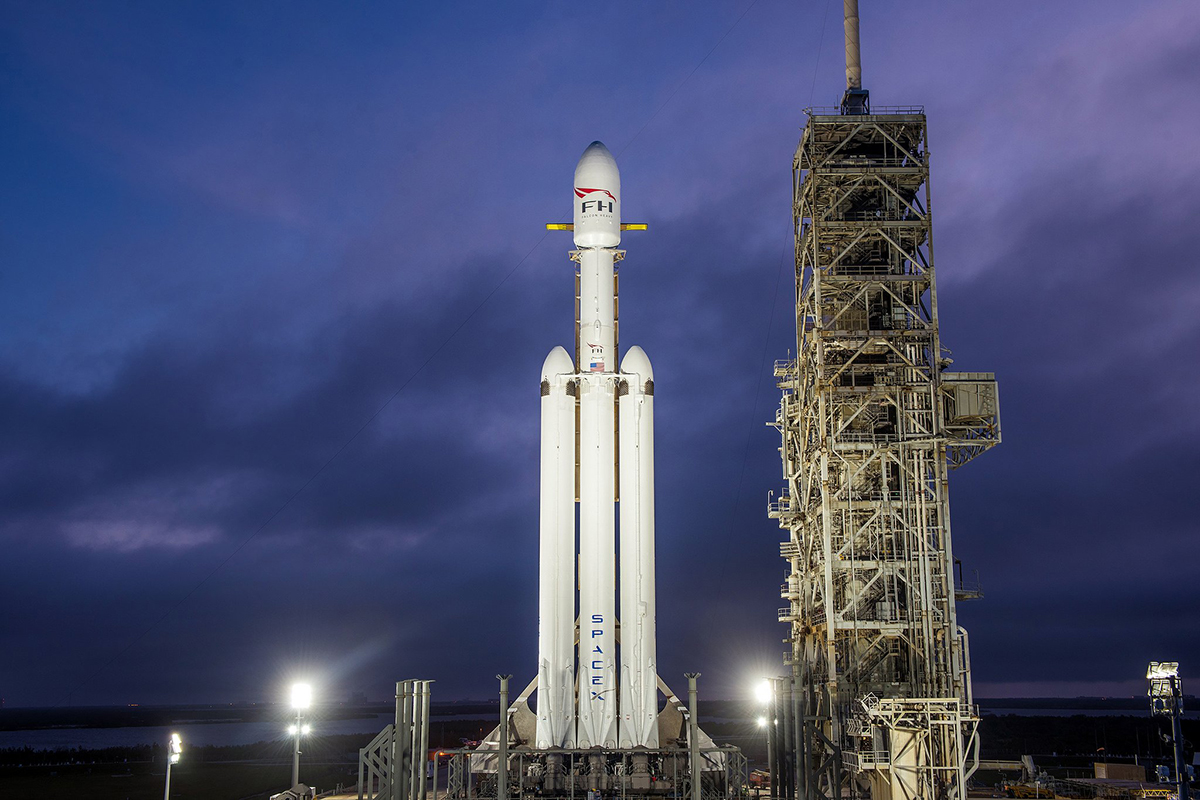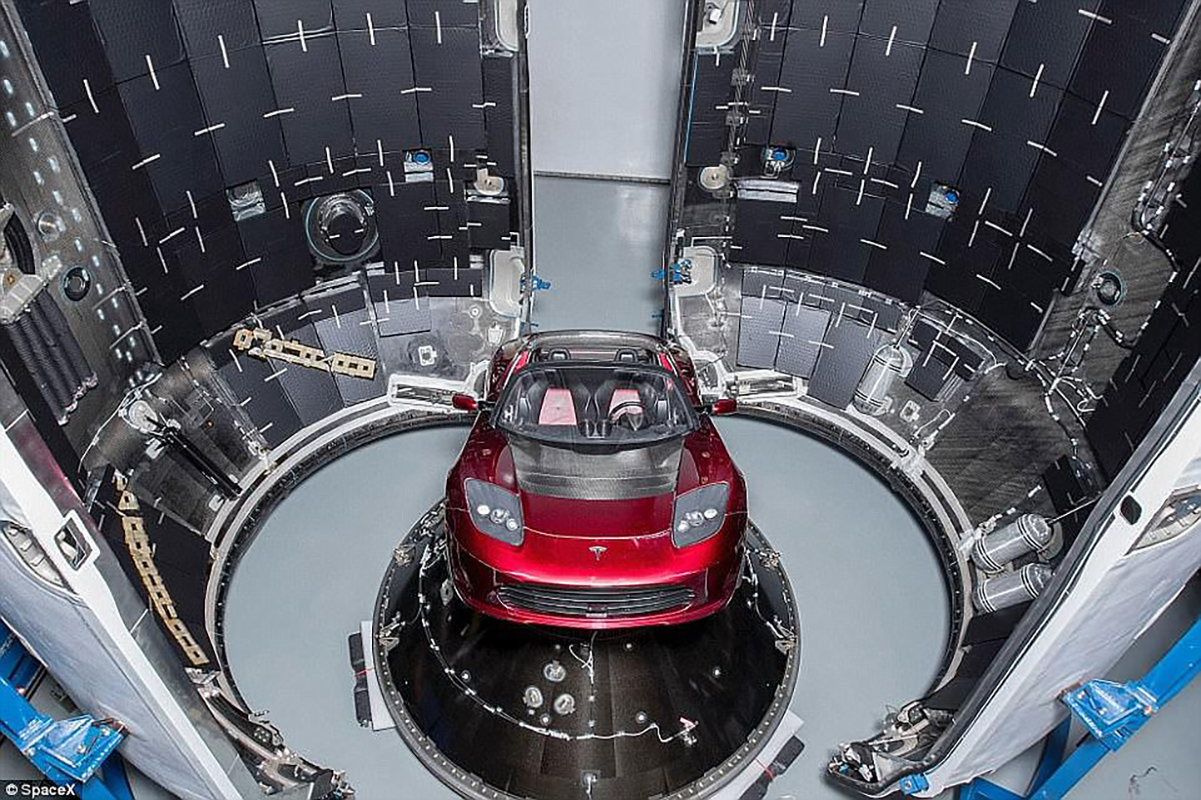This website uses cookies so that we can provide you with the best user experience possible. Cookie information is stored in your browser and performs functions such as recognising you when you return to our website and helping our team to understand which sections of the website you find most interesting and useful.
Elon Musk aims for Life on Mars with SpaceX’s record-breaking launch
By Michelle Johnson | 7 February 2018 | Culture, Lifestyle, Travel
SpaceX’s rocket Falcon Heavy launched on 6 February, as Elon Musk sent his car into space

Elon Musk has shot forward the billionaire space race with his successful launch of SpaceX's Falcon Heavy – the most powerful rocket in operation. The mission test, which launched from Cape Canaveral on 6 February, carried aboard Musk's own $100,000 electric Tesla Roadster car, which a day later was filmed 'flying' through space manned by a dummy astronaut while blasting out David Bowie's 'Life On Mars'.
The billionaire businessman described the 70m-tall rocket's launch as having a 50/50 chance of success – and that, should it fail, could be the greatest firework show ever seen. It's launch, and the successful return to earth of two of the three reusable boosters that launched it, are a huge turning point for the company, which hopes to lead the first space tourism journey to Mars by 2022.
In fact, Musk's passion for the red planet such that he has been quoted saying, "I want to die on Mars… just not on impact". His cherry red Roadster was planned to orbit Mars for the stunt – however reports suggest it overshot the mark and it is now headed for an asteroir belt. >>

He said before launch: "If we are successful, it's game over for other operators of heavy-lift rockets. It's like where one aircraft company has reusable aircraft and all the other aircraft companies had aircraft that were single-use, and you'd sort of parachute out at your destination and the plane would crash land somewhere. Crazy at it sounds, that's how the rocket business works."
SpaceX's innovations in landing rockets via controlled burns has allowed the company to reduce the projected cost of space flight from billions of U.S. dollars to the tens of millions. NASA's planned SLS rocket is set to cost approximately $1bn per flight, while the Falcon Heavy launch cost $90m. Musk's fan include adventurer and royal guide Inge Solheim, who told Tempus: "I’d love to go into space, but not as a tourist – I would happily volunteer for a one- way trip to Mars. It wouldn't happen the next five to 10 years but I would want that extraordinary experience of leaving this planet and seeing new things
The company began life delivering satellites and supplies to the ISS and NASA. It aims to create reusable rockets that will reduce the cost of space flight – and open it up to commercial use. SpaceX made history in March last year, when it safely reused a rocket twice. Musk aims to fly two tourist expeditions to the moon this year, but ultimately, his true aim is Mars. Could the red planet be the next five-star resort?







